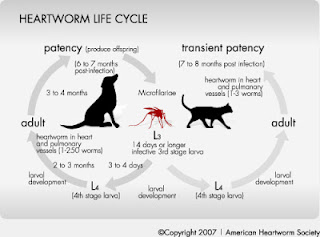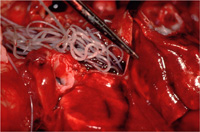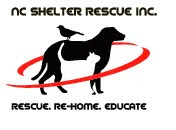 FREQUENTLY ASKED QUESTIONS
LATEST UPDATE AS OF August 28, 2012:
FREQUENTLY ASKED QUESTIONS
LATEST UPDATE AS OF August 28, 2012:
Various stages of pre-production and production have begun for some Novartis Animal Health brands. Production, packaging and shipping of the 5mg strength of Clomicalm® (clomipramine hydrochloride) is now ongoing at the Lincoln plant, and shipments of that stock keeping unit (SKU) began in mid-June. We also have initiated validation batch production of Sentinel® (milbemycin oxime / lufenuron) Flavor Tabs® at the plant, a critical phase of process testing that is required before full scale production can begin. As we validate, technical issues do arise. Due to the evolving situation at the plant, we cannot give exact dates when product will be shipping.
We have invested significant resources to achieve the swiftest possible resolution of this issue, and our robust team of staff and consultants is working hard to ensure that normal production resumes as soon as is practically possible. We realize that the temporary interruption in product availability has created challenges for pet owners who rely on Novartis Animal Health products, and we deeply regret the inconvenience this has caused you. Once a definitive production schedule is available, it will be communicated.
BACKGROUND
A decision was made in December 2011 by Novartis Animal Health to temporarily suspend production at its Lincoln, NE processing plant, which is responsible for manufacturing several Novartis Animal Health brands including Interceptor® (milbemycin oxime) Flavor Tabs®, Sentinel® (milbemycin oxime / lufenuron) Flavor Tabs®, Program® (lufenuron) Flavor Tabs®, Program® (lufenuron) Suspension, Milbemite® (0.1% milbemycin oxime), Deramaxx® (deracoxib) and Clomicalm® (clomipramine hydrochloride).
We assure you that all Novartis Animal Health brands remain safe and effective when used according to the product label. There were no veterinary product recalls as part of the temporary plant shut down. Veterinarians can continue to prescribe - and pet owners can continue to administer - these trusted brands with full confidence.
The decision to temporarily suspend production was done with great consideration after several quality and regulatory reviews determined that system upgrades and other improvements were needed to enhance the facility's processes and functions so that it could better meet the needs of our customers in the future. We understand the challenges this might pose, and we deeply regret the inconvenience this may have caused our customers. Your continued support during this temporary period is appreciated, and we will continue to keep you informed about when we expect to resume full production and shipment of new product.
FREQUENTLY ASKED QUESTIONS
1. Why are Sentinel® Flavor Tabs® and Interceptor® Flavor Tabs® not available at my veterinary clinic?
In December 2011, Novartis made the voluntary decision to temporarily shut down its Lincoln, NE manufacturing plant, which manufacturers many Novartis Animal Health products, to focus on system and process upgrades. The decision to temporarily suspend production was driven by the company's ongoing commitment to the highest standards.
Novartis teams have been working hard to resume regular production schedules for our veterinary products. We have been making good progress. However, definitive production timelines are not available at this time. Once this information is available, it will be communicated.
2. What products were affected by this temporary shutdown?
Novartis Animal Health brands produced in Lincoln, NE for the U.S. market include Interceptor® Flavor Tabs®, Sentinel® Flavor Tabs®, Program® Flavor Tabs®, Program® Suspension, Milbemite®, Deramaxx® and Clomicalm®. Products produced in Lincoln for Canada include Interceptor® Flavor Tabs®, Sentinel® Flavor Tabs® and Program® Flavor Tabs®, which are affected by the temporary shutdown at Lincoln.
3. Are the products safe?
Yes, all of the brands remain safe and effective when used according to the product label. There were no veterinary product recalls as part of the temporary plant shut down. Veterinarians can continue to prescribe them, and pet owners can continue to administer these trusted brands with confidence.
4. If my veterinarian has products in stock, are there any dangers in using these products? Are there any product issues?
Novartis Animal Health has not received any reports of another brand being mixed in with one of its products, although we did learn of a single Clomicalm® bottle containing an isolated Clomicalm® tablet of a lesser strength. (Ongoing progress at the manufacturing site should have this issue fixed shortly). For precaution, we recommend that all Clomicalm® tablets be examined prior to administration to ensure they are the correct size, shape and color, and any perceived abnormality should be reported to Novartis Animal Health.
5. My dog can only use Novartis heartworm products, what should I do?
We realize that the temporary interruption in product availability has created challenges for pet owners who rely on Novartis Animal Health products and we deeply regret the inconvenience this has caused you.
We recommend that you work closely with your veterinarian to determine the best health care needs of your dog during this temporary situation.
6. In a Novartis news release dated February 2, it was stated that already-manufactured product was being shipped out to veterinarians, so why doesn't my veterinarian have product?
Already-manufactured products did begin shipping in early February. However, the temporary voluntary stoppage of production and distribution of the products affected has created a back-order situation for many of our veterinary customers and we have not been able to meet all of the demand.
7. I buy Sentinel® Flavor Tabs® (or Interceptor® Flavor Tabs®) online through a retailer. Why do they not have product and where can I get it if they don't have it?
Since Novartis Animal Health does not sell directly to online retailers, we are not able to tell you where retailers purchase their product supply. Novartis supports the veterinary-client relationship and only sells its products directly to licensed veterinarians.We recommend that you check with a veterinarian in your area for assistance and product availability. To find a veterinarian in your area, go to
www.sentinelpet.com and click on the Veterinary Finder link.
8. What will Novartis do to make up this inconvenience to pet owners and veterinarians?
We would like to tell veterinarians and pet owners throughout the US and Canada just how much we regret the temporary supply disruption and the issues it may have caused for them. Novartis Animal Health is committed to the highest standards of quality and care for pets. We are making every possible effort to ensure that we get back to normal production schedules as soon as possible - so that we can continue to provide trusted products that protect the health of our beloved pets. Our ultimate commitment to our valued customers is having the best sustainable solutions in place for them for the long term.
9. The lack of product availability may cause current users of Novartis products to switch to other products to fulfill their pet's health needs in the short term. How will you address this with veterinary practices/pet owners?
Our department of Technical Product Services and Pharmacovigilance (1-800-637-0281) offers help to veterinarians with questions about patient care. And when production resumes, Novartis intends to do its very best to see that our brands reach as many clinics, and their patients, as soon as possible.
10. How are you keeping pet owners and veterinarians informed of progress?
Please refer back to this website for updates.
11. How can veterinarians and pet owners get more information about this issue?
If you have additional questions about product availability, please call Customer Service at 1-800-332-2761. For technical questions about use of our veterinary products, or to report an adverse event, please call Technical Product Services and Pharmacovigilance at 1-800-637-0281.


















